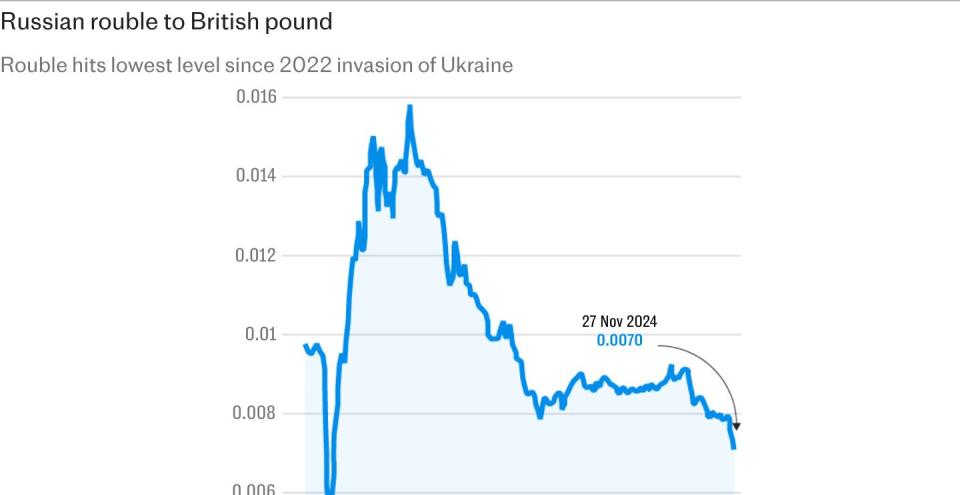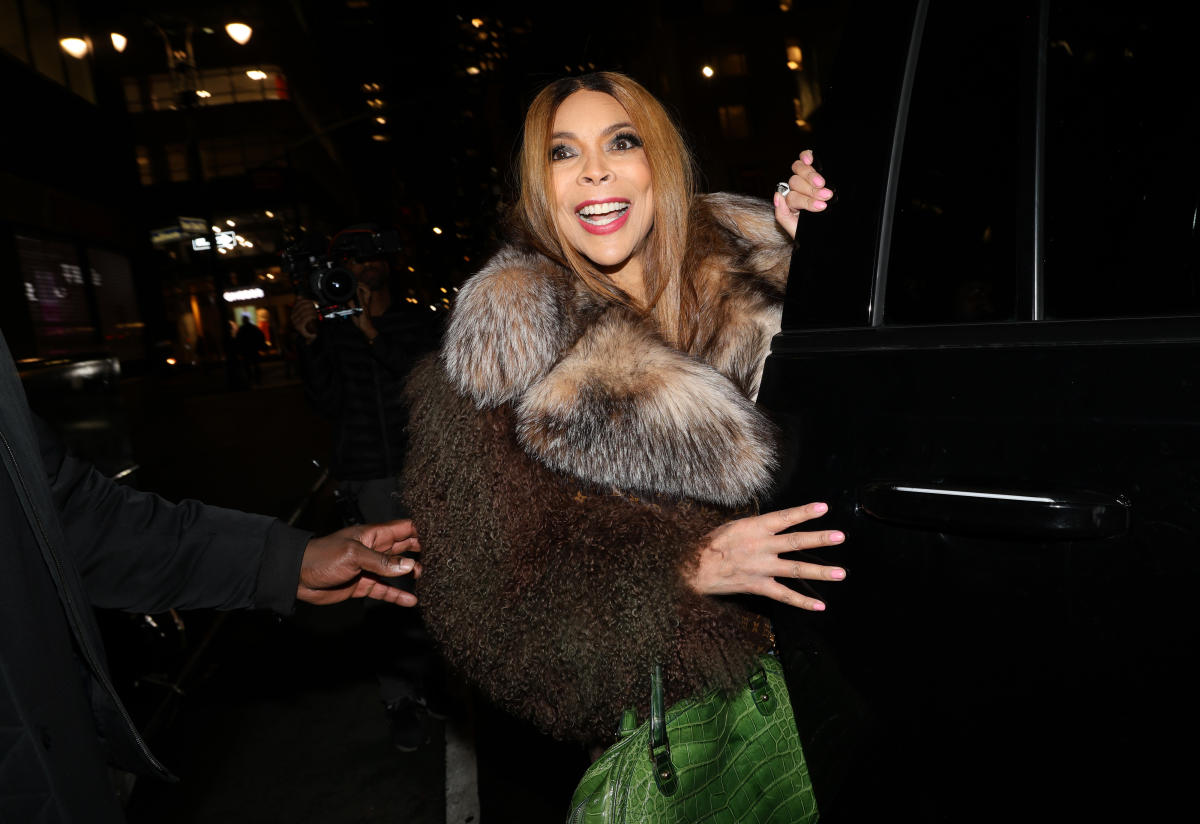The Kremlin has tried to reassure Russians they will not be affected by the sudden collapse of the rouble, which has plunged to its lowest level since the invasion of Ukraine.
Dmitry Peskov, the Kremlin spokesman, dismissed the rouble’s fall of 8.5 per cent on Wednesday as irrelevant, apparently ignoring analysts’ concerns about rising import costs and foreign exchange “panic”.
“Russians won’t notice the dollar exchange rate increase because they are paid in roubles,” he confidently told reporters.
Hit by strong inflationary pressures linked to Western sanctions and the Kremlin’s spending on its nearly three-year war in Ukraine, the Russian rouble has lost 35 per cent of its value since the start of August.
It is now trading at around 114.5 against the US dollar – the lowest level since March 2022 in the immediate aftermath of Russia’s full-scale invasion of Ukraine.

Last week, the US placed extra sanctions on Gazprombank, the third largest bank in Russia. This complicates foreign payments for Russian gas and also makes currency trades harder.
Russia’s central bank responded to the rouble collapse by suspending currency trades until 2025 and traders said that there was a rising sense of dread.
Analysts from Russian-based BSC Financial Group said that the fall in the value of the rouble “resembled panic in an environment of uncertainty”.
For Vladimir Putin, the ailing war-orientated Russian economy is one of his most serious concerns.
Western sanctions have made products more expensive to buy and an emphasis on military spending has fuelled salary inflation.
The Kremlin has been offering huge signing-on bonuses for men to join its army and has also been paying excess salaries to workers in its weapons industries.
Analysts blamed the Russian central bank for underestimating the impact of Western sanctions.
Dmitry Pianov, VTB first deputy chairman, said: “We believe that the share of consumer imports in the basket is 25 per cent, so this pass-through is stronger.
“Our models show an effect five-times stronger than that of the central bank.”
The Russian central bank, according to some analysts, is planning to respond to the rouble’s fall by jacking up interest rates from 21 per cent – already the highest level for at least two decades – to around 25 per cent.
EMEA Tribune is not involved in this news article, it is taken from our partners and or from the News Agencies. Copyright and Credit go to the News Agencies, email news@emeatribune.com Follow our WhatsApp verified Channel





